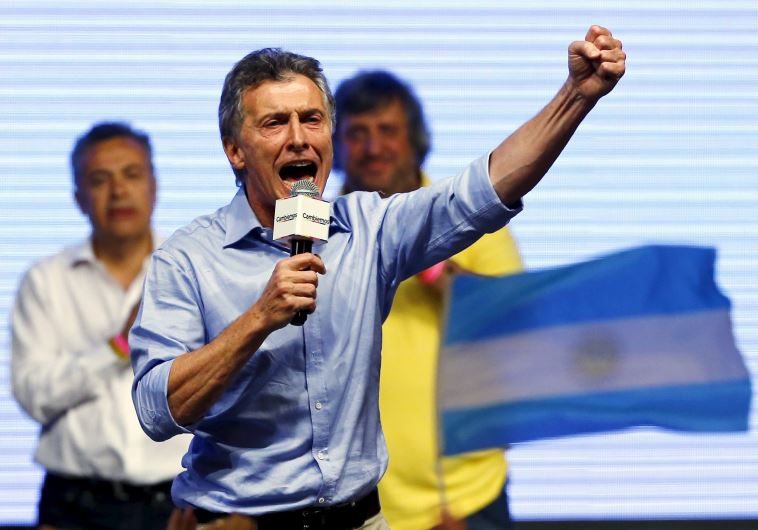Opposition candidate Macri wins Argentina election, breaking Kirchner-Fernandez legacy
Mauricio Macri promises to set Latin America's third biggest economy on a more free-market course after a combined 12 years of leftist populism.
 Conservative opposition candidate Mauricio Macri comfortably won Argentina's presidential election, November 22, 2015
Conservative opposition candidate Mauricio Macri comfortably won Argentina's presidential election, November 22, 2015